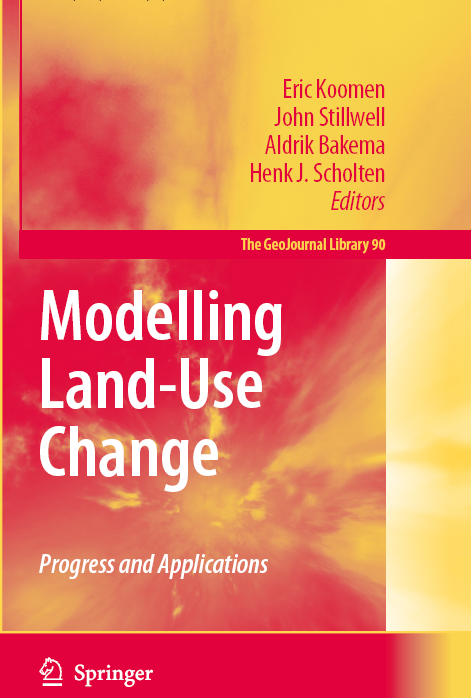The analysis and simulation of land-use change has long been the topic of intensive research at the Vrije Universiteit Amsterdam.
- Analysis of trends and driving forces in past land use changes. Past projects include the explanation of land-use patterns and land prices through statistical (regression) analysis to underpin the development of land-use models within Europe or in other regions in the world. Currently we are involved in the analysis of property prices and land values c.q. empirical bid rents, see www.landvalues.nl for more information. With these analyses we aim to shed more light on the valuation of amenities and the explanation of (spatial) factors that determine the market price of residential land use.
- Simulation of future land use. We participate in various projects to further develop the Land Use Scanner model and continue to apply it in several scenario-based studies, for example related to climate change or agriculture. Validation of the model is the latest research priority.
- Impact assessment of anticipated land use changes. The ultimate goal of most simulation studies of future land use is to inform policymakers on the possible future state of several policy related issues. We assist this evaluation of policy themes with the development and application of indicators of land use change, related to for example the fragmentation of open space, the concentration of urbanisation and flood risk assessment.
Updates
EC-JRC meeting on integrated territorial policy assessment
The Joint Research Centre of the European Commission (EC-JRC) invited a large delegation of SPINlab to contribute to their international workshop on integrated territorial policy assessment in Ispra, Italy. Together with, amongst others, researchers from the JRC units in Seville and Petten, scholars from the United Kingdom and representatives of...Read More »
UNIGIS MSc thesis: The influence of land use change on hydrology
Changes in land use have influence upon hydrology. This influence can been subdivided into direct and indirect influence of changes in land use upon hydrology. Direct influence comprises the influence of changes in land use upon evapotranspiration and degree of imperviousness and may thus lead to changes in groundwater recharge....Read More »
Vasco Diogo hits the local Australian news, highlighting the use of a land-use modeling framework to assess the potential for biofuels
PhD researcher Vasco Diogo, who is visiting the University of Melbourne as part of his activities in the Tools for adaptation strategies project, presents his work at the Biofuel Forum in Traralgon, Victoria. He will highlight the use of a land-use modeling framework to assess the potential for...Read More »
Simulating future urban heat islands using the socio-economic scenarios
Climate change is likely to affect living conditions in urban areas, causing, for example, an increase in the urban heat island effect. Understanding why urban areas have a higher temperature than their rural surroundings and finding appropriate adaptation measures are topics in the Climate proof cities research project (KfC theme...Read More »
Knowledge for climate - Theme 8: Socio-economic scenarios updated
The updated land-use projections related to the Global Economy (GE) and Regional Communities (RC) scenarios have been released. These scenarios were initially developed by a consortium of Dutch research institutes (CPB et al., 2006) and translated into land-use projections in cooperation with PBL Netherlands Environmental Assessment Agency (Riedijk et al.,...Read More »

